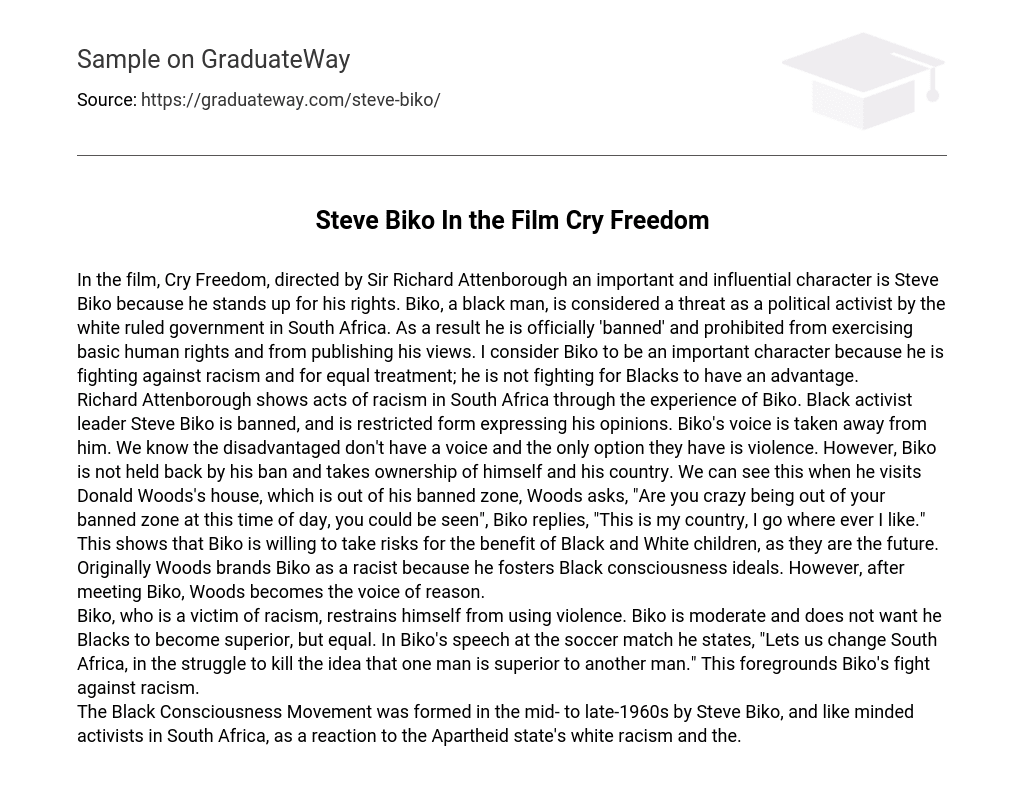In the film, Cry Freedom, directed by Sir Richard Attenborough an important and influential character is Steve Biko because he stands up for his rights. Biko, a black man, is considered a threat as a political activist by the white ruled government in South Africa. As a result he is officially ‘banned’ and prohibited from exercising basic human rights and from publishing his views.
I consider Biko to be an important character because he is fighting against racism and for equal treatment; he is not fighting for Blacks to have an advantage. Richard Attenborough shows acts of racism in South Africa through the experience of Biko. Black activist leader Steve Biko is banned, and is restricted form expressing his opinions. Biko’s voice is taken away from him. We know the disadvantaged don’t have a voice and the only option they have is violence.
However, Biko is not held back by his ban and takes ownership of himself and his country. We can see this when he visits Donald Woods’s house, which is out of his banned zone, Woods asks, “Are you crazy being out of your banned zone at this time of day, you could be seen”, Biko replies, “This is my country, I go where ever I like.” This shows that Biko is willing to take risks for the benefit of Black and White children, as they are the future. Originally Woods brands Biko as a racist because he fosters Black consciousness ideals. However, after meeting Biko, Woods becomes the voice of reason.
Biko, who is a victim of racism, restrains himself from using violence. Biko is moderate and does not want he Blacks to become superior, but equal. In Biko’s speech at the soccer match he states, “Lets us change South Africa, in the struggle to kill the idea that one man is superior to another man.” This foregrounds Biko’s fight against racism. The Black Consciousness Movement was formed in the mid- to late-1960s by Steve Biko, and like minded activists in South Africa, as a reaction to the Apartheid state’s white racism and the.





